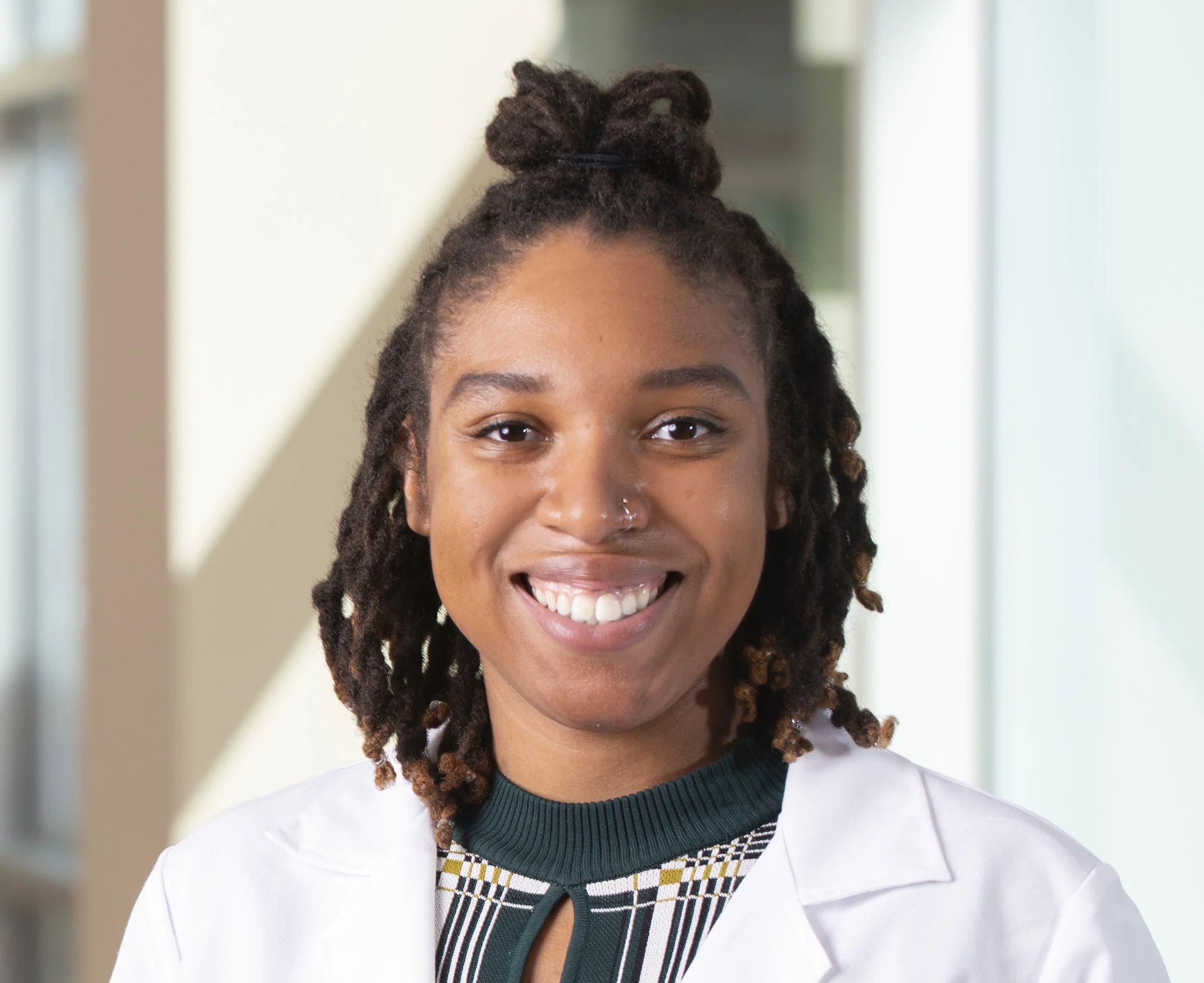RDN Spotlight: Leslie Edwards, MS, RDN, LD, CPT
What is your ethnicity/race? Did your family have any customs related to food? Please describe.
Black. We didn't have any customs but my mother made sure to instill healthy eating practices - lean meat, fish, fruit, vegetables, etc.
Where/when did you go to undergrad/dietetic internship/grad school?
B.S in Human Nutrition and Dietetics - The Ohio State University 2015
M.S in Exercise Physiology and Dietetic Internship - Miami University of Ohio 2020
Why did you decide to choose nutrition and dietetics as a career?
I wanted a career where I could combine my love for food, exercise, and health, but with blacks and minorities being disproportionately impacted by obesity and other chronic diseases, it's essential having a diverse work force that reflects the population we see in office.
What do you do now as an RDN and what does a typical day/week look like for you?
I work as a clinical dietitian in a weight loss center providing bariatric surgery and supervised medical weight loss programs. For patients with obesity having bariatric surgery, there are one on one and group appointments to help them make long term behavioral changes. In our physician supervised medical weight loss program, people attend virtual weekly classes and follow a low calorie, high protein diet using partial meal replacements to add in structure then eventually replace those with food based, healthy meals. A typical day may be 1:1 initial appointments with new patients, follow-ups, responding to patient message/calls, and class (pre-op nutrition or weekly supervised class topic like managing challenges/problem solving).
What is/was the biggest challenge for you in becoming a dietitian and how did you overcome that challenge? This can be related to being an RD of color or not just any challenge?
The biggest challenge was finding the right master's and internship program that would give me the tools to be successful but wouldn't cost too much. I asked about an opportunity for a Graduate Assistantship (GA), and while I didn't have a definitive answer at my interview, they eventually reached out and offered me the GA position for part of my program. I wouldn't have had the amazing opportunity that provided me a solid nutrition counseling and weight loss background unless I inquired and fought for myself.
Have you had any mentors in your career if yes how have those mentors affected your career/life?
Yes, I had many mentors in both my undergraduate and graduate career. I would say they all had an impact on my life but in different ways. My biggest mentor would be my older sister who paved the way for my success and was there supporting me every step of my journey. Now we're both sporting our white coats as she is beginning medical school, and I'm officially in my dream job as a weight loss dietitian.
Why do you think diversifying this field is important?
Diversity and inclusion is so important because the opposite of that can cause serious harm. If a person of color is told that what they eat in their culture "isn't healthy" or "they have to do this", it can make them feel like their identity is being ignored. So then what happens? They won't come back and seek treatment, and their disease progresses. Especially in the field of obesity, there already is weight discrimination so if you add on race/ethnicity, it makes it even harder for people to feel comfortable asking for help.
What is a piece of advice you would give a student of color interested in entering the field of dietetics?
Listen to your heart. People will have a lot to say on where you should start your dietetics career and while it's meant to be helpful, you also have to be true to yourself. I knew I wanted to do go into weight loss, but people suggested doing inpatient clinical, so that's where I started off. It didn't take long for me to realize this wasn't going to work. Soon after, I landed in my current role which I love.

